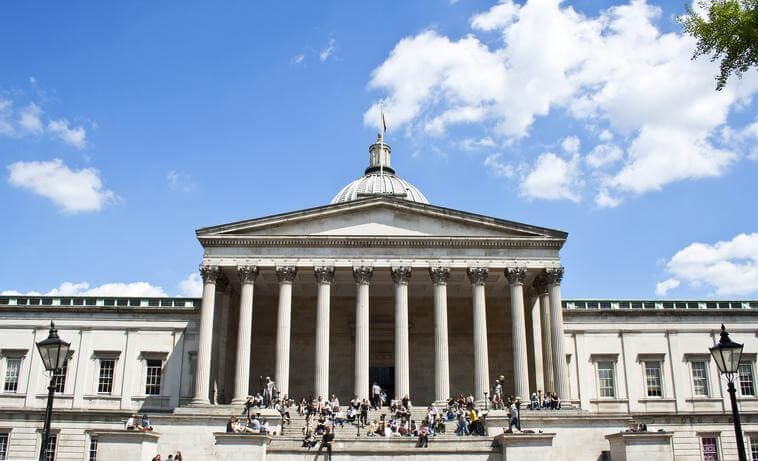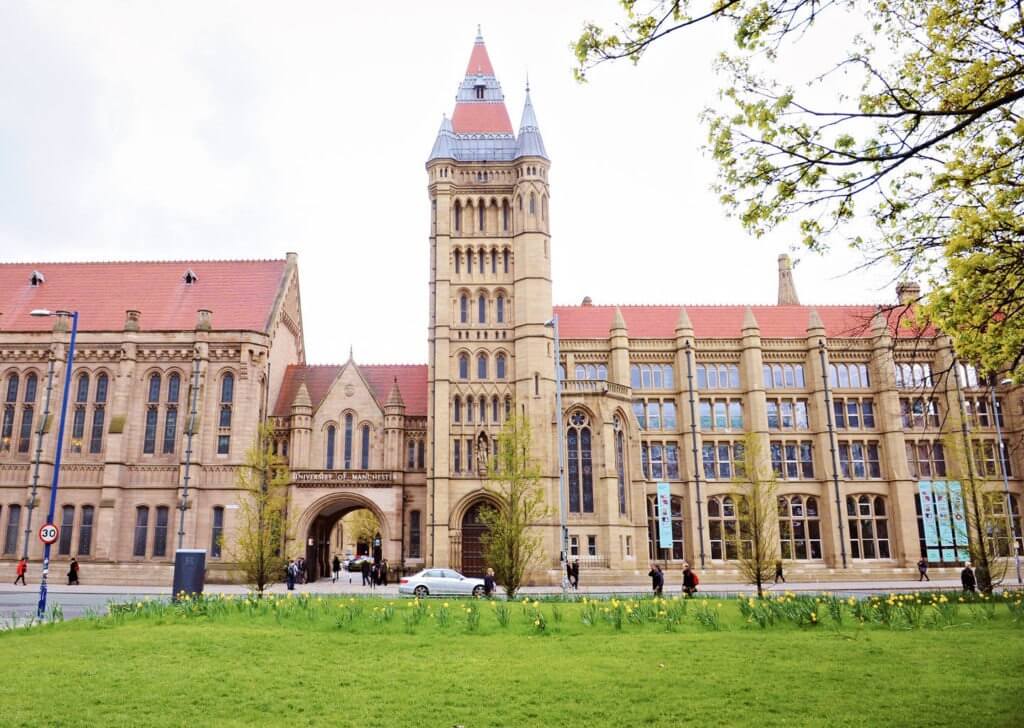STUDY IN UK
- The UK is home to top universities
- It’s incredibly diverse
- Studying in the UK will improve your English skills
- It’s a great place to live




The United Kingdom has been regarded as a hub of knowledge and quality education. Studying in the UK is a great way to expand your knowledge, network, and experience a new culture. UK degrees are highly valued around the globe. It opens up avenues for students towards real-life learning through a research-intensive learning and practical approach. The country has a good blend of both modern and ancient architectural buildings. The degrees in the UK are generally shorter in duration than other countries and as a result help students to budget their expenses towards tuition fees and living expenses. The country is also well known for its multicultural society with varied cultures, languages, and faiths. The UK Universities offer a huge range of clubs and societies and attractive social life. For entertainment, the country offers many sporting events and has a great opportunity towards the discovery of its unique heritage and countryside.
Universities & colleges in the UK are ranked best for their academic excellence and reputation among employers across the globe. Undoubtedly, it has to do everything with the age-old tradition of education and the heritage value of the country as a hotspot of knowledge, culture and success. Degrees from the reputed UK universities open up innumerable career options for students and it is one of the many reasons to be a popular overseas education destination among international students. Added to it are the facts that the teaching faculties and the research methods nurture the creative traits of the students and prepare them for the real-world.
More than 10,000 courses available in British Universities nurture and develop the best in the students, training them to encourage an open mind, skills in logic, develop creativity and self-reliance. In the job market of the future, these qualities are valued by potential employers.
Universities in the UK design their courses to prepare each and every student to evolve professionally to meet and overcome the global challenges that lay ahead.
Studying in the UK enhances students’ overall experience of seeing things from an International market perspective and allows them to become more accessible to the global network. UK Universities are famous for having campuses with students from a diverse range of backgrounds.
The university offers its students various options to study in the UK as full-time, part-time, evening Programme, distance, and eLearning.
The climate of the UK is generally temperate, although significant local variation occurs, particularly as a result of altitude and distance
| Area | Ranked 78th |
|---|---|
| • Total | 242,495 km2 (93,628 sq mi) |
| • Land | 99.31% |
| • Water | 0.69% |
499 km land border with Ireland
The United Kingdom consists of four countries united under one government. The countries are England, Scotland, Wales and Northern Ireland. Each has a distinct culture and feel of its own. At the higher education level, students have a wide range of options when they choose a college or university.Although there are agencies that attempt to rank colleges and universities, the concept of “fit” is also important. The GPA* of admitted students is important, but majors offered, location, number of students enrolled, and campus culture are all factors influencing a prospective student’s decision. Some colleges and universities are publicly funded, while others are privately supported
Psychology

University of Oxford: Established in the 12th century, Oxford is one of the oldest and most prestigious universities in the world. It is known for its rigorous academics, tutorial-based teaching system, and historic campus.

University of Cambridge: Like Oxford, Cambridge is a world-renowned institution with a long history of academic excellence. It is known for its strong emphasis on research and innovation across various disciplines.

Imperial College London: Imperial College is a leading institution specializing in science, engineering, medicine, and business. It is known for its cutting-edge research, technological innovation, and strong industry links.

London School of Economics and Political Science (LSE): LSE is renowned for its social sciences programs, including economics, politics, sociology, and international relations. It is known for its influential research and global academic community.

University College London (UCL): UCL is a multidisciplinary university with strengths
in areas such as medicine, engineering, law, arts, and sciences. It is known for its
diverse student body and vibrant campus life.

University of Edinburgh: Located in Scotland’s capital, the University of Edinburgh is known for its strong research programs, particularly in fields such as medicine, science, humanities, and social sciences.

Manchester is a research-intensive institution known for its strengths in science, engineering, social sciences, and humanities. It has a diverse student population and a vibrant urban campus.

Warwick is known for its innovative approach to teaching and research, particularly in areas such as business, engineering, mathematics, and the
arts

Bristol is a leading research university known for its strengths in science, engineering, social sciences, and arts. It has a strong emphasis on interdisciplinary collaboration and student engagement.

The admission process can be broadly divided into the following steps:
Global Recognition and Employability: Degrees from UK universities are highly respected and recognized worldwide. Graduates benefit from the reputation of their alma mater and the quality of education received, enhancing their employability and career prospects, whether they choose to work in the UK or return to their home countries
Research Opportunities: The UK is a leading hub for research and innovation, with universities actively engaged in groundbreaking research across various fields. Students have access to state-of-the-art facilities, resources, and opportunities to participate in research projects, contributing to their academic and professional development.
Scholarship and Funding Opportunities: Many UK universities offer scholarships, grants, and financial aid to international students based on academic merit, talent, or need. Additionally, there are external funding sources, government scholarships, and part-time work opportunities available to support students during their studies.
Language Advantage: English is the primary language of instruction in UK universities, making it an accessible destination for international students from non-English speaking countries. Studying in an English-speaking environment also provides an opportunity to improve language skills, which can be beneficial for future career prospects.
High-Quality Education: The UK is home to some of the world’s oldest and most
prestigious universities, known for their academic excellence and rigorous
standards. Institutions such as the University of Oxford, University of Cambridge,
Imperial College London, and London School of Economics consistently rank among
the top universities globally.
Diverse Range of Programs: UK universities offer a wide variety of courses and
degrees across disciplines, including arts, humanities, sciences, engineering,
business, and more. Students have the flexibility to choose from different program
structures, durations, and specializations to suit their interests and career goals.
Shorter Duration of Programs: Undergraduate degrees in the UK typically take three
years to complete, compared to four years in many other countries like the USA. This can lead to cost savings in terms of tuition fees and living expenses and allows
students to enter the workforce or pursue further studies sooner.
Rich Cultural Experience: Studying in the UK provides an opportunity to immerse
yourself in British culture and history, as well as interact with people from diverse
backgrounds. The UK is known for its vibrant cities, historic landmarks, museums,
theaters, and multicultural communities, offering a rich and dynamic living
experience.
Medicine: Medical degrees are highly regarded in the UK, with universities offering comprehensive programs that combine theoretical learning with practical clinical experience. Medicine graduates from UK universities are in high demand globally.
Law: Law degrees in the UK are renowned for their academic rigor and practical focus. Students can choose from undergraduate LLB programs or postgraduate courses like the Legal Practice Course (LPC) or Bar Professional Training Course (BPTC) for aspiring solicitors and barristers, respectively.
Business and Management: Business degrees, including Bachelor of Business Administration (BBA) and Master of Business Administration (MBA) programs, are popular choices for students interested in pursuing careers in management, finance,
marketing, entrepreneurship, or consulting.
Engineering: Engineering degrees in the UK cover a wide range of disciplines,
including mechanical, electrical, civil, aerospace, and chemical engineering. UK
universities are known for their strong emphasis on practical skills, innovation, and industry connections.
Computer Science and Information Technology: With the growing demand for tech professionals, computer science and IT courses are increasingly popular in the UK. Students can study topics such as software engineering, artificial intelligence, cybersecurity, and data science.
Finance and Economics: Courses in finance, economics, and accounting are highly sought after, especially in financial hubs like London. Graduates from these programs often pursue careers in banking, investment, consulting, or government.
Psychology: Psychology degrees in the UK provide comprehensive training in areas such as clinical psychology, cognitive psychology, developmental psychology, and organizational psychology. Graduates can pursue careers in counseling, research, education, or clinical practice.
Architecture and Built Environment: The UK is home to some of the world’s top architecture schools, offering programs that blend design creativity with technical expertise. Graduates can work in architecture firms, construction companies, urban planning agencies, or academia.
Life Sciences and Biotechnology: With ongoing advancements in healthcare and biotechnology, courses in life sciences, biology, biochemistry, and biotechnology are popular choices for students interested in research, pharmaceuticals, or healthcare
Creative Arts and Design: The UK has a vibrant arts and design scene, with courses available in fine arts, graphic design, fashion design, performing arts, and studies.
September/October Intake: This is the primary intake period for most undergraduate and postgraduate courses at UK universities. Many universities offer the widest range of courses and have the largest number of available spaces during this intake. It aligns with the start of the academic year, allowing students to begin their studies in the fall.
January/February Intake (Spring Intake): Some universities offer a secondary intake period in January or February, also known as the spring intake. While not as common as the September intake, this option provides an opportunity for students who missed the September deadline or who prefer to start their studies in the spring semester
April/May Intake (Summer Intake): A few universities may offer a third intake period in April or May, primarily for specific postgraduate courses or research programs. This intake is less common and may have limited availability depending on the institution and the course of study. It’s essential to check the specific intake dates and deadlines for the courses and universities you’re interested in, as they can vary depending on the institution and the level of study. Additionally, some courses may have multiple intakes throughout the year, while others may only have one intake per year. When planning your application, keep in mind that admission deadlines for popular courses and universities can be competitive, especially for the September intake. It’s advisable to start researching and preparing your application well in advance to ensure that you meet all the requirements and submit your application on time. If you’re considering studying in the UK, it’s a good idea to contact the admissions office of the universities you’re interested in to confirm the intake dates, application deadlines, and any specific requirements for international students. This will help you plan your application timeline and increase your chances of securing a place at your preferred institution.
COST OF LIVING IN UK
The cost of living in the UK can vary significantly depending on factors such as
location (urban vs. rural), lifestyle choices, accommodation preferences, and
personal spending habits. Here’s a breakdown of some typical expenses you might
encounter:
Accommodation: This is usually the largest expense. The cost of rent can vary
greatly depending on the city and the type of accommodation (shared apartment,
private apartment, student dormitory). In cities like London, rental prices tend to be
higher compared to other parts of the country
Utilities: This includes electricity, heating, water, and internet. If you’re renting a
place, these costs may be included in your rent, but if not, they can add up to several
hundred pounds per month
Food: The cost of groceries and eating out can vary based on your dietary
preferences and habits. Cooking at home is generally more affordable than dining
out, but eating out occasionally is also common. Students often budget around
£100-£200 per month for groceries.
Transportation: If you’re living in a city, you may be able to walk or cycle to most
places. Otherwise, you’ll need to budget for public transportation costs, such as
buses, trains, or the London Underground. A monthly transportation pass can range
from £60 to £150, depending on the city and the type of pass.
Healthcare: If you’re studying in the UK on a student visa, you may be eligible for free
or subsidized healthcare through the National Health Service (NHS). However, you
may still need to budget for additional healthcare expenses like prescriptions, dental
care, and optometry.
Books and Supplies: Depending on your course requirements, you may need to
purchase textbooks, stationery, and other academic materials. This cost can vary but
is typically a few hundred pounds per year.
Personal Expenses: This includes things like clothing, entertainment, social
activities, and travel. The amount you spend on these items will depend on your
lifestyle and personal preferences.
For international students applying to study in the UK, particularly at the undergraduate or postgraduate level, there are several standardized exams that may be required depending
on the program and university. Here are the main ones:
English Language Proficiency Tests: As mentioned earlier, international students whose first language is not English are typically required to demonstrate proficiency in English. The most commonly accepted tests for this purpose are the IELTS (International English Language Testing System) and TOEFL (Test of English as a Foreign Language). Some universities may also accept other English proficiency tests like Pearson Test of English (PTE) Academic or Cambridge English exams (such as C1 Advanced or C2 Proficiency).
Standardized Subject Tests: While not always mandatory, some universities and specific programs may require applicants to take standardized subject tests. These tests assess your knowledge and skills in specific subjects related to your chosen field of study. Examples include:
● SAT (Scholastic Assessment Test): Commonly required for undergraduate admissions, especially for applicants from countries where the education system is not based on English. ● ACT (American College Testing): Similar to the SAT, the ACT is also commonly accepted for undergraduate admissions in the UK.
● Advanced Placement (AP) Exams: For students who have completed Advanced Placement courses in high school, some universities may consider AP exam scores for credit or advanced standing. Graduate Admission Tests: For postgraduate (master’s or Ph.D.) programs, especially in fields like business, engineering, or sciences, you may need to take standardized graduate admission tests. The most common ones include:
● GRE (Graduate Record Examination): Required for admission to many graduate programs, particularly in the sciences and humanities.
● GMAT (Graduate Management Admission Test): Required for admission to MBA and other business-related graduate programs. It’s important to note that specific exam requirements can vary between universities and even between different programs within the same university. Therefore, it’s crucial to carefully review the admission requirements of each university and program you’re interested in applying to and to ensure that you fulfill all necessary exam requirements. Additionally, some universities may have their own English language proficiency exams or may offer conditional admission for students who need to improve their English skills before beginning their academic studies.
Choose a Course and Institution: Before applying for a visa, you need to have an
offer of acceptance from a UK university or college. Make sure to choose a course
and institution that are eligible for student visas.
Apply for the Course and Receive Confirmation of Acceptance (CAS): Once you’ve
been accepted into a course, the institution will issue a Confirmation of Acceptance
for Studies (CAS) document. This document contains a unique reference number
that you’ll need for your visa application.
Check Visa Requirements: Visit the UK government’s official website or the website
of the UK Visas and Immigration (UKVI) to determine the specific visa requirements
based on your nationality and the type of visa you need. For most international
students, this will be the Tier 4 (General) Student Visa.
Complete the Online Application Form: Start your visa application by completing the
online visa application form on the UK government’s official website. You’ll need to
provide personal details, information about your intended course of study, and
details from your CAS.
Pay the Visa Application Fee: The visa application fee varies depending on factors
such as your nationality and the type of visa you’re applying for. You can pay the fee
online as part of the visa application process.
Biometric Information: After completing the online application form and paying the
visa fee, you’ll need to schedule an appointment to provide biometric information
(fingerprints and photograph) at a visa application center. This information is used to
verify your identity.
Submit Supporting Documents: Prepare and submit supporting documents along
with your visa application. These may include your passport, CAS letter, proof of
funds to cover tuition fees and living expenses, academic transcripts, English
language proficiency test results, and any other documents required based on your
individual circumstances.
Attend Visa Interview (if required): In some cases, you may be required to attend a
visa interview as part of the application process. This is typically done at the visa
application center or through a virtual interview.
Wait for Processing: After submitting your visa application and attending the
biometric appointment (if required), you’ll need to wait for your visa to be processed.
Processing times can vary depending on factors such as your location and the time
of year.
Receive Visa Decision: Once your visa application has been processed, you’ll receive
a decision on your visa application. If your visa is approved, you’ll receive a visa
vignette (sticker) in your passport or a digital visa if you applied for a Biometric
Residence Permit (BRP).
Travel to the UK: Once you have your visa, you can travel to the UK within the validity
period of your visa. Make sure to comply with any conditions attached to your visa,
such as registering with the police if required.
International students in the UK may be eligible to stay back after completing their
studies to gain work experience or explore further opportunities. The UK offers
various options for students to extend their stay after graduation:
Tier 4 (General) Student Visa Extension: If you’re completing a degree at a UK
university, you may be eligible to extend your Tier 4 visa to continue your studies or
start a new course. You’ll need to apply for a new Tier 4 visa before your current visa
expires and meet the eligibility requirements, including having a valid Confirmation of
Acceptance for Studies (CAS) from your institution.
Graduate Route (Post-Study Work Visa): The UK has reintroduced the Graduate
Route visa, which allows international students who have completed a degree at a
UK institution to stay and work in the UK for up to two years (or three years for PhD
graduates) after graduation. This visa does not require sponsorship from an
employer and allows you to work or look for work in any field.
Students can appear in any of the following tests.
The UK is the global leader in numerous areas of education like engineering, science, art & design, business & management, law, and finance.
You can take a part-time job, work placement or internship alongside your studies in the UK and the hours and type of work will depend on the type of visa and your sponsoring university or college.
You can stay in the halls of residence that are on-site or nearby the university or college or rent your own accommodation. You can also opt for a shared living accommodation.
The standardized test requirements will vary for international students depending on the program. By and large only English Language tests, such as IELTS, TOEFL or PTE are required by most Universities. The tests such as GRE, GMAT, or SAT are required by very few Universities and for selected courses only.
COPYRIGHT © 2024-25 SREC Overseas Education Consultants